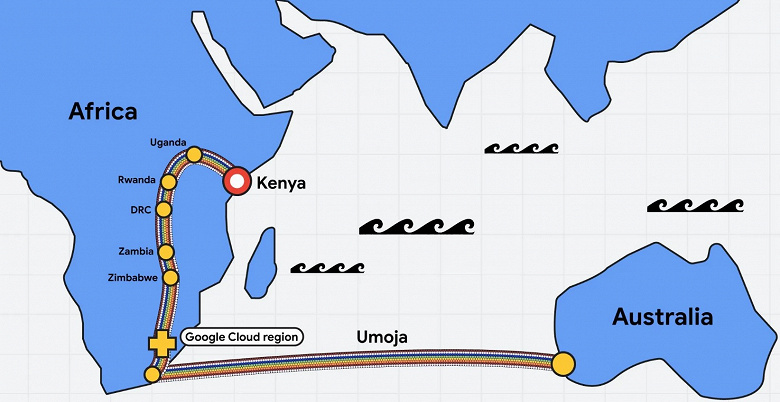The project aims to improve the reliability of network connectivity in Africa
Google is preparing to lay the first undersea fiber optic cable connecting Africa and Australia. The new cable, called Umoja, will be a key piece of infrastructure that better connects African countries to each other and to the rest of the world.
The cable laying began amid increasing power outages in Africa caused by damaged submarine cables. For a cloud and digital services company, uninterrupted connectivity is of utmost importance. Therefore, Google strives to strengthen its position in the African market by offering a reliable solution.
Route «Umoja» will pass through several countries in Eastern and Southern Africa, including Kenya, the Democratic Republic of Congo, Rwanda, Uganda, Zambia and Zimbabwe, before reaching South Africa, where Google's first African regional data center is located. The ground part of the route has already been built with the assistance of Liquid Intelligent Technologies.
Currently, work is underway to lay the underwater section of the cable across the Indian Ocean to Perth (Australia). While the exact timeline for completion of the project has not been disclosed, a Google spokesperson noted that the typical duration for undersea cable installations, from planning to commissioning, is about three years. Therefore, we can expect Umoja to be ready for use around 2026.
According to Google Cloud Vice President of Global Network Infrastructure Brian Quigley, the new cable will allow African countries to more reliably connect with each other and with the rest of the world, which is critical to maintaining network resilience in region that has previously experienced severe outages.
Undersea cables are a strategic focus for major technology companies including Amazon, Google, Meta* and Microsoft. These infrastructure investments help improve the experience, whether for consumers streaming content or businesses using cloud computing.
* Meta is recognized in Russia as an extremist organization, its activities are prohibited.

